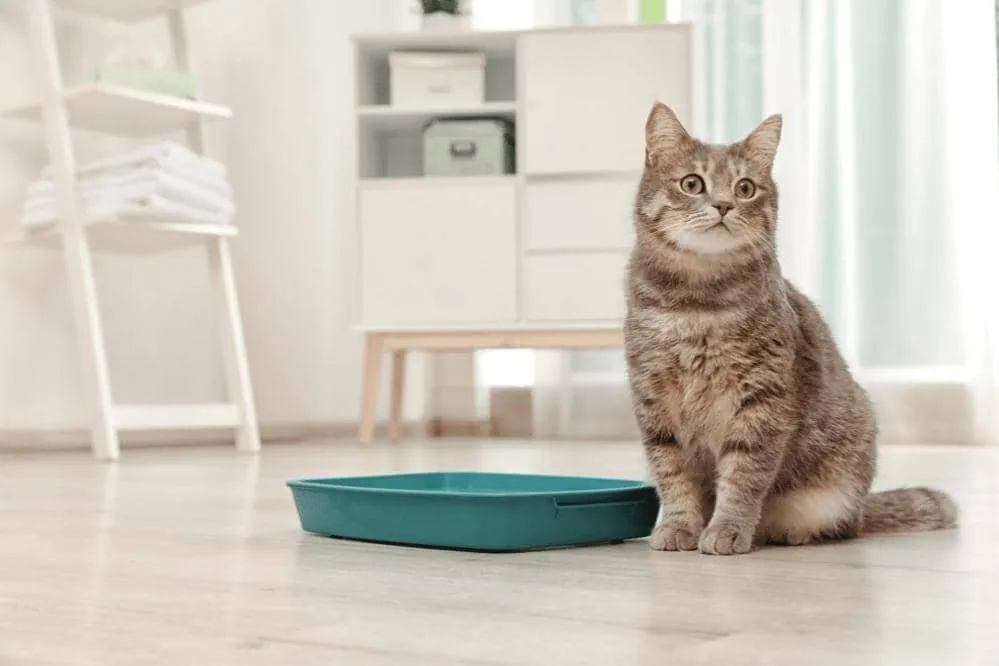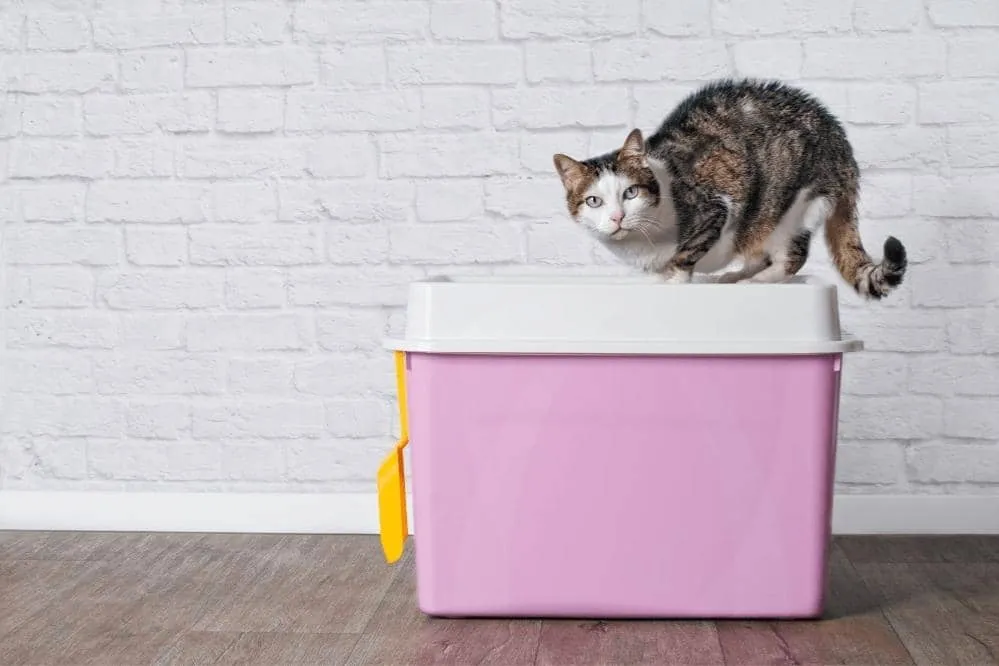Do Cats Automatically Use Litter Box?

Getting a cat is exciting — you’re signing up for lots of love from this little ball of fur, even though they’re pretty independent. But before they enter your home, you need to prepare and do some shopping. There’s a whole list of supplies your cat will need for a happy life.
For instance, did you already get a litter box for your new pet? If yes, you may be wondering – do cats automatically use the litter box? Keep reading to find the answers.
Does Your Cat Need Litter Training?
Unfortunately, animals aren’t born with the skills we want them to have. The same way you need to teach a dog to do its business outside and not on your carpet, you need to train your cat to use the litter box. So the short answer to the question do cats automatically use the litter box is – no. Cats automatically don’t know what the litter box is for, and they’ll need some time to learn.
If you already have an adult cat and get a kitten, this process might be more comfortable. Whether the kitten is learning from the mom or other cats in your home, they’ll be able to smell the litter box and know what it’s used for. Young cats learn very quickly from their older companions just by watching what they’re doing. In this case, the kitten might not need any additional instruction.
However, if you get a cat for the first time, you’re the one who’ll have to teach them what they’re supposed to do with that colorful box in your bathroom. We have several tips that will help you do this successfully and as quickly as possible.
Litter Box Training for Kittens
Kittens are fast learners. You’ll probably be surprised when you see how little they need to learn how to use the litter box.
- When the kitten is young, try to spend a lot of time with them. It will prevent “accidents” around your home and speed up the learning process.
- The timing is crucial. Put the kitten in the litter box often during the day. The most critical periods are after waking up, after playtime, and after meals.
- Show the kitten what they can do in the litter box. Take their paws and drag them through the litter to show them they can dig around.
- Let the kitten examine the box, sniff around it and get in and out.
- Reward the kitten each time they manage to do what they’re supposed to do in the litter box.
- Accidents will probably happen outside the litter box until they learn how to use it. You probably won’t be eager about cleaning up the mess, but try not to punish the kitten.
- Make sure you have more litter boxes in your home. It will reduce the number of accidents. Ideally, you should have two for one cat, three for two cats, and so on.
- Get rid of any distractions around the litter box. Don’t keep any cat toys, interesting rugs, and similar items that may catch their attention and divert them from the business in question.
- Clean the litter box often. Keeping the cat “bathroom” clean might help your kitten get used to it faster. Don’t forget to add more litter after scooping out the waste, so the kitten has enough of it to dig.
- Make sure the litter box is accessible for your cat. For kittens, the walls shouldn’t be too high. They should at least have an entry of no more than 2-3.”
Litter Training for Older Cats
Training a cat at a younger age might be simpler, but if you adopt or buy an adult cat, don’t be discouraged. It’s possible to teach them how to use the litter box too. If you have other cats, it may be even easier.
- In all likelihood, an adult cat has already formed a habit related to doing its business. Try to figure out what kind of surface they associate with “bathroom.”
- Experiment with different litters if your cat doesn’t seem to catch on very fast. There’s clay litter, gravel-texture one, fine-grained sand, and more.
- Try filling the litter box with soil. If the cat’s a stray, it might remind them of their old home and help them transition to using the box more quickly.
- Ensure that the litter box is dry and clean. If you’ve adopted a stray, they’re used to using many different sites and never return to the same one. That’s why they’re less likely to use a dirty litter box.
- To prevent accidents, ensure your closets are appropriately closed so your cat can’t get in.
- Spayed and neutered cats are more likely to learn how to use the litter box without trouble.
- If you notice your cat is a “sprayer,” you should get a litter box with higher walls.
- Don’t change the litter box location until the cat’s fully trained. Even then, the change of location might confuse them, and they’ll need additional training. Also, make sure you place the litter box somewhere private. The living room isn’t the best choice, but the bathroom is.
- Adult cats also appreciate treats as rewards for excreting in the litter box.
Litter Box Training Doesn’t Need to Be Difficult
Do cats automatically use the litter box? No, but teaching them doesn’t need to be a great deal of trouble for you. Depending on whether your cat is a kitten or an adult, there are different strategies you can apply to help them adopt this new habit.
Using rewards will do the trick, as well as being patient and consistent. Cats are intelligent and fast learners, but be prepared to clean up the odd accident before you can say your furry friend is fully litter-trained.



